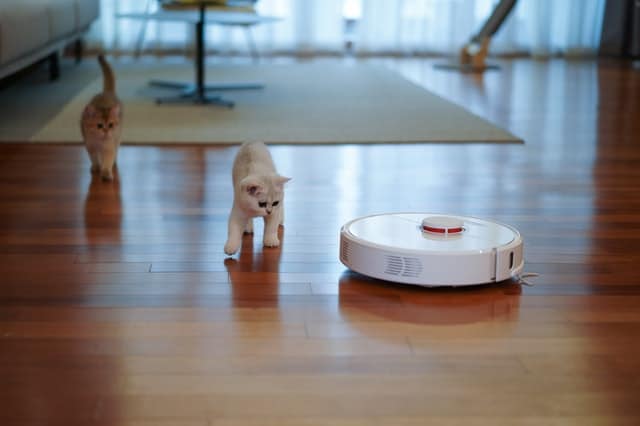That is correct, the title is not wrong. No younger generation is stupider or lazier than any preceding generation.
It doesn’t matter what name is given to a group of people or to how we categorize bunches of individuals simply based on cultural influences around their particular birth dates.
This logic applies to any generation. Just name one.
Boomers. Gen Z. Xennials or Millennials. The Greatest, Silent, or Lost Generation.
If you think about, the whole concept of applying labels to people based on birth date alone is an arbitrary and, dare I say it, stupid idea. It is about as absurd as thinking that certain stars overhead give meaning and define your personality…

Just think, do you like to be labeled with an arbitrary label that has societal (and often negative) implications?
I don’t.
If I am being honest here, it also wasn’t too long ago that if I had truly reflected upon the concept of of younger, labeled people being less intelligent or less industrious than myself that I would have agreed with that sentiment.
Not now. Nor will I ever think that way again.
It actually took me being a parent to teenagers to both truly think about this concept and to change my own ideals around this topic.
The problem is, there are many more societal arguments against the idea that younger people are stupid and lazy.
Take hiring managers. Think about how many of them complain how hard it is to get teenagers to show up to flip burgers. How hard managers complain about getting shifts filled at your local Walmart.
There are tons of jobs out there, so why won’t these younger kids take them and be thankful to have a job and want to work hard?
As an Engineering Manager who deals with interns from a local college, my days should be rife with management issues and phone calls about empty desk chairs because these lazy engineering students aren’t showing up.
Yet, in retrospect, I have never had to deal with these kinds of issues. Truth be told, I never even realized this fact until recently and therefore have never stopped to ask why.

The answer lies in my children. Or, rather, it lies in observing and attempting to understand these young humans as they try and figure out this thing called life.
You see, growing up, it was a running joke in the house for my parents to joke that the only reason for kids was in order to have free labor.
Free labor for mowing the lawn. Free labor for cleaning and putting away dishes. Free labor for all kinds of other things that I didn’t want to do and would drag my feet while doing.
Watching my own kids bicker and argue about a 2-minute job to empty a clean dishwasher turned into an eye-opening experience. Observing how difficult it was for kids to simply put away their clothes was world changing. Watching how many spots were missed while they “lazily” swept the floor was a transcending experince.
Kids aren’t lazy. Kids aren’t stupid.
Take the average teenager from the year 2020, locked in their home due to COVID-19. Compare them to the average teenager from the year 1980.
Sure, we could get in our magical time machine and get these individuals together and give them some sort of intelligence test to see who is smarter.
But how would that test be administered? Would it be on a smartphone or a tablet? Using a No2 pencil and scanning sheets?
Would both of them even have the experience and knowledge to use any method for test taking?

Every generation of humans is smarter than the last. Every generation has one more ring added to the overall tree of knowledge.
So younger kids aren’t stupider than older generations. They have more information at their fingertips than older generations could even dream of as a kid.
There are more books that have been published today than at any point ever before in human history. The internet is larger and has more information available in a single search today than at any point in the past.
And there will be more information available tomorrow.
Observing my own children shows me that they are smarter and more creative in ways that I can’t even comprehend. Their “hip” societal knowledge is leaps and bounds past my own. Of course, I don’t post on Instagram or watch TikToks.
Now we get to the lazy part.
It could be that humans in general are just lazier. Have we invented so many “labor saving” devices when it comes to housework that we just have tons more free time on our schedules?

First, and most dramatically, we see the decline in time devoted to cooking, clearing, and general household cleaning. The 1920s sample had a mean of 271 minutes per day (95% confidence interval plus or minus six minutes). By 1975, this had fallen by nearly one-and-three-quarter hours to 168 minutes (plus or minus nine minutes), and by the 2000s it had fallen a further hour per day to 108 minutes (plus or minus three minutes), a clear, monotonic, unambiguously significant decline in a core domestic task. Laundry time was nearly halved, from forty-eight minutes/day (plus or minus two minutes) in the 1920s to twenty-five minutes (plus or minus three minutes) in 1975 (again a clearly significant decline), but then no change (again twenty-five minutes, plus or minus one minute) in the 2000s.
Housework Now Takes Much Less Time: 85 Years of US Rural Women’s Time Use
So general cleaning time was cut by two thirds and laundry time by half between the 1920s and the 2000s. We must all be lazier, right?
Yet the lazy label that is ascribed to younger is nothing new. A basic internet search turns up copious amounts of results on this topic.
The secret here came to me while watching my children do chores and it also applies to the workplace.
Humans crave and require ownership.
The reason that I am so much more invested in keeping my house clean and my dishes put away neatly is held in back and white in the text o this sentence.
“My house”. “My dishes”.
Teenagers don’t own anything. The house that they are cleaning is not part of their ownership structure. Therefore it is ok to do a half-assed job in cleaning it.
What do you think happens if you give a teenager a new-to-them used car that has a bunch of stuff in it? I observed this firsthand watching my own child take a relatively clean used car, remove all of my stuff from the car, and clean that thing until we could both see our reflections in the waxed shine on the hood.

Even though the title to that vehicle is in my name, that car has been adopted into the ownership idea for my teen.
So what does this mean for the up and coming young Engineer?
It is always easier said than done, but it all comes down to communication.
When working with anyone from an older generation simply know that your thoughts, ideas, and values probably won’t match up. You have a responsibility to communicate these things to that other person.
This doesn’t mean that you need to learn boomer slang to get your point across. You know you aren’t lazy and that you have some amazing fresh new ideas.
Work hard, be you, and don’t give up. Sometimes communication happens less by what you say and speaks louder by what you do. Always remember that results can be much louder than mere words.
How about the older Engineering Manager?
Again, the simplistic answer here is communication.
In this case the communication needs to focus on listening, learning, and understanding what this other human is saying. Sure – you may have tried and true methods. You have experience. You may already have an answer to a new idea that it is functionally impossible.
Yet sometimes the best way to communicate that is to listen and let people try and build their own experiences and gain their own knowledge. The only way that you know for sure that it won’t work is if you have actually tried and failed. Who gave you that opportunity? Would you have listened if they simply told you no and walked away?
At the end of the day, Engineers, kids, younger generations, and humans in general aren’t really lazy. Sure, there are exceptions to this, but for the most part, laziness is a perception and lack of understanding.

Therefore, in order to be the best humans, Engineers, teammates, and coworkers that we can be, communication, communication, and more communication is key.
This is true whether you are communicating and working hard to learn and grow. This is also true if you are communicating and listening and allowing others to gain wisdom and experience.
We are all trying to be better Engineers and learn and grow and that is the very antithesis of laziness.
Thanks for reading!


Comments are closed, but trackbacks and pingbacks are open.